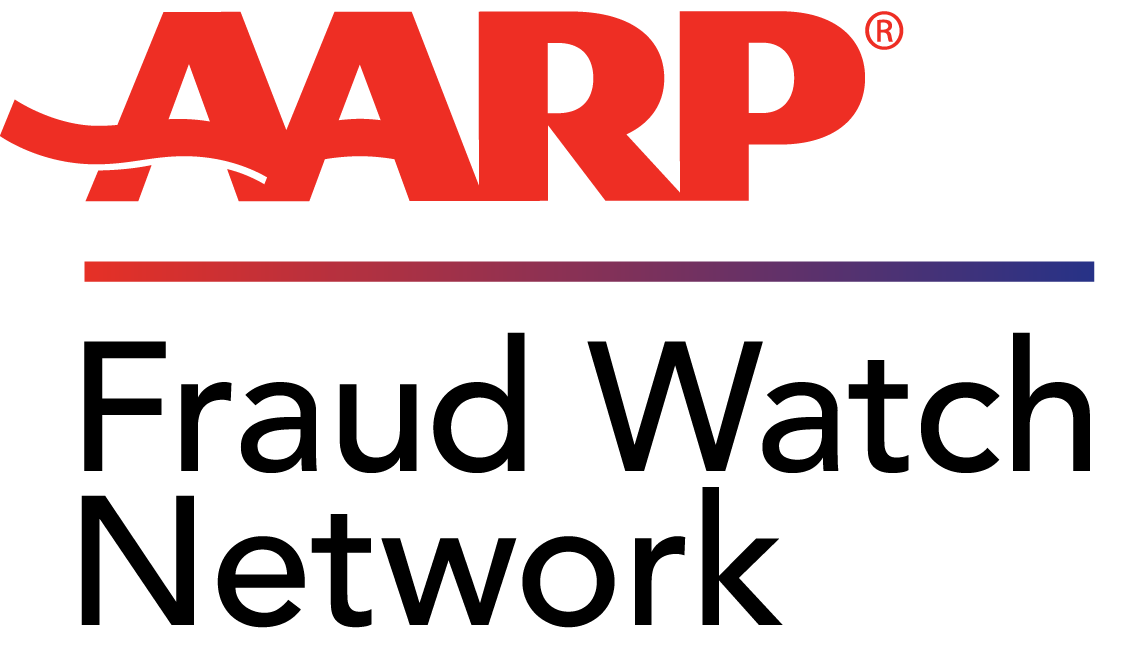AARP Hearing Center

Did you know that someone’s identity gets stolen every two seconds? The AARP Fraud Watch Network provides you with tips and resources to help you spot and avoid identity theft and fraud so you can protect yourself and your family. Our watchdog alerts will keep you up to date on con artists’ latest tricks. It’s free of charge for everyone: AARP members, non-members, and people of all ages. Be a fraud fighter! If you can spot a scam, you can stop a scam. Report scams to local law enforcement. Contact the AARP Fraud Watch Network at www.aarp.org/fraudwatchnetwork for more information on fraud prevention.
The AARP Fraud Watch Network is:
- An Educator: Get real-time alerts about the latest scams, tips on how to spot them, and the inside scoop on how con artists think so you can outsmart them before they strike.
- A Watchdog: Our nationwide scam tracking map gives you access to a network of people who've spotted scams and the opportunity to pass along your own experiences, so together we can beat con artists at their own game.
- A Resource: Get connected to a real live person trained in how to avoid fraud and advise you if you or a loved one has been scammed by calling our fraud hotline or attending a virtual forum in your community.
- Free for Everyone: Anyone, of any age, can access our resources at no cost.

SCAM ALERT #1: AARP Fact Tracker
Do you believe everything you see online? The obvious answer is no, but there are plenty of sensationalized headlines, misleading stories and even complete falsehoods circulating on the Internet, making it hard for even the most discerning reader to sort fact from fiction.
Disinformation online is a key tool for scammers. Luckily AARP has a new online resource to arm you with the skills to decipher what’s real and what isn’t on the web. Visit aarp.org/facttracker for interactive tools and resources that will help you sort out fact and fiction online.

SCAM ALERT #2: SCAMS TARGETING VETERANS
Their time in service to protect our country is over. Now it's our turn to protect our veterans from scams. Veterans deserve our gratefulness, our respect and praise. Here's what they don't deserve: attempts to take advantage of their service. Yet every day, scammers attempt to defraud our veterans of their hard-earned benefits, steal their identity, or take their savings. These frauds include seeking donations for fake charities claiming to serve our nation’s veterans (always research before giving); targeting veterans with fake employment opportunities (it’s a scam if you have to pay to get the job or provide sensitive personal information); and offers of free cash from little-known government grant programs (the federal government doesn’t hand out grants to individuals).
Together, we can fight back and take one small step to repay our veterans for their service and sacrifices.

SCAM ALERT #3: CYBER SHOPPING SCAMS - COVID
It’s Thanksgiving, which means the holiday shopping season is about to kick off. Only this year, we can expect a big uptick in online shopping as we continue dealing with the pandemic. Here are three tips to make sure the hot deal you’re clicking on is really legitimate.
First, be suspicious of any discounts larger than 55% off. Second, be on the lookout for irregular contact information, such as a Yahoo or Gmail address instead of a corporate retail account. Third, be wary of web addresses that are overly complex, don’t include the corporate retail name or don’t start with “https” -- they are all indicators that your data or your money may not be safe.

SCAM ALERT #4: MEDICARE OPEN ENROLLMENT SCAMS
It’s open enrollment season, which means it is also Medicare fraud season. Eligible beneficiaries have until December 7 to shop for the best deal for their health care dollar. Unfortunately some of the deals they will be offered won’t be deals at all.
Just like in other years, Medicare scams spike during open enrollment season with scammers posing as insurance providers calling and emailing about free gifts or limited time offers. These scams are all designed to capture information scammers can use to bill Medicare for bogus services and treatment.
Be suspicious of anyone who calls, emails or visits you promoting a Medicare plan. Legitimate health plans can only contact you if you’ve requested information. Don’t give personal information to anyone who calls or visits out of the blue and always review your Medicare or explanation of benefits statement to ensure fraudulent charges aren’t included.
Be a fraud fighter! If you can spot a scam, you can stop a scam.
Report scams to local law enforcement. For help from AARP, call 1-877-908-3360 or visit the AARP Fraud Watch Network at www.aarp.org/fraudwatchnetwork.































































